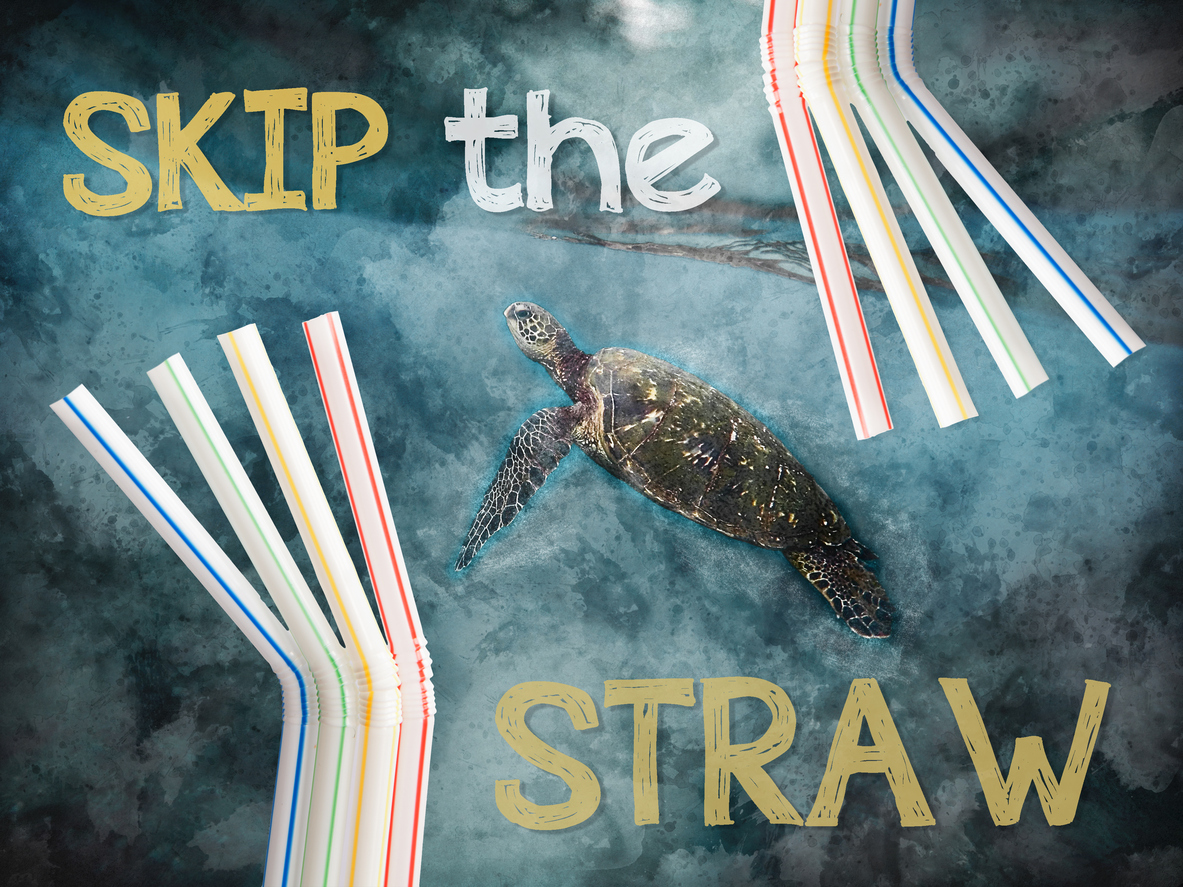By Kelly Dooley

We have all heard about the plastic pollution in the oceans and observed those graphic images of dead marine life with plastic-filled stomachs, sea turtles trapped in plastic bags or with straws in their noses. My first observation of the plastic pollution was a little less graphic, but still concerning. During a study abroad in the Turks and Caicos, a stretch of beach on my island was littered with trash on a weekly basis. People would clean the beach, and within days the currents would bring in the next load of trash. My second experience was while snorkeling at Playa Del Carmen, Mexico. I expected to see crystal clear waters, but to my surprise, plastic debris was everywhere, clouding the view of the colorful coral reefs and marine life.
After witnessing the plastic pollution first hand, it took me nearly eight years to do something about it. Because it was not about properly recycling the plastic I purchased, yet more about reducing the waste that I produce.
About three years ago, I made my family stop throwing away clear plastic bags that were recyclable from such items as bread, bagels and 3-lb bag of apples. We’re not perfect. We adopted a baby during this period and used conventional diapers. Just by cleaning and drying those plastic bags, and then taking them to the local grocery store, such as Cub Foods, to be recycled; we were able to downsize our curb waste cart from a medium size (3-4 person family) to small size (1-2 person family). Not only did we reduce our plastic waste and impact on the planet, but saved money too.
We have taken other action steps since then. We use reusable water bottles, try to avoid plastic-wrapped food, joined our city’s organic waste recycling program, and bring our own reusable bags when shopping. If I forget my bags, I request my items to be placed back in the cart instead of having them bagged in plastic. My husband recently switched to using a metal safety razor. The metal blades can resharpened and/or recycled.
I believe it is not too late to reduce plastic pollution in our oceans and ultimately, produce less waste for the planet. One action step that is so simple, yet is easy to overlook is skipping the straw. I didn’t even think about skipping the straw until it became an internet sensation. Despite the movement being a sensation, doesn’t mean it is a fad. Skipping the straw at cafes, bars, and restaurants is the right thing to do.
I always assumed straws were being recycled along with the other recyclable plastic. The size of a straw is the biggest barrier to recycling. As plastic travels down the conveyor belts while being sorted, small items like straws are hard to pick out and end up being sent to the landfill,” (WorldWatch Institute, 2015). “The world is now producing nearly 300 million tons of plastic every year, half of which is for single use. More than 8 million tons of plastic is dumped into our oceans every year,” (Plastic Oceans Foundation, 2018).
You can skip the straw too! It is a small effort, but an important one. “People in the US and UK throw away 550 million straws every day,” (Plastic Oceans Foundation, 2018). You have to ask your server or bartender for no straw before you order your drink, and even request no straws in your glass of water too. Juice boxes, for parents, are the trickier skip, but it can be done. If you really need a straw, you can purchase a reusable metal or plastic straw. These reusable straws are often affordable, foldable, and can fit in your pocket or purse.
The momentum of grass-root efforts over the last few years has showed me that it is possible to make a difference. Starbucks and American Airlines are now planning to do away with the single-use plastic straws. There are also local organizations that are working on moving our cities, big venues and business towards zero waste through education, advocacy, and policy changes. Sierra Club: North Star Chapter’s - Zero Waste Task Force is one such organization and is always looking for new volunteers. Other zero waste organizations can also be found via Facebook or the internet.
You can type, “steps to produce less waste,” in your search engine and a list of easy steps will appear for guidance throughout your day. Often, it is thoughtful decisions and purchases that make a difference while out and about, like skipping the straw! Remember, just one simple step is all it takes to start out on the journey of producing less waste.